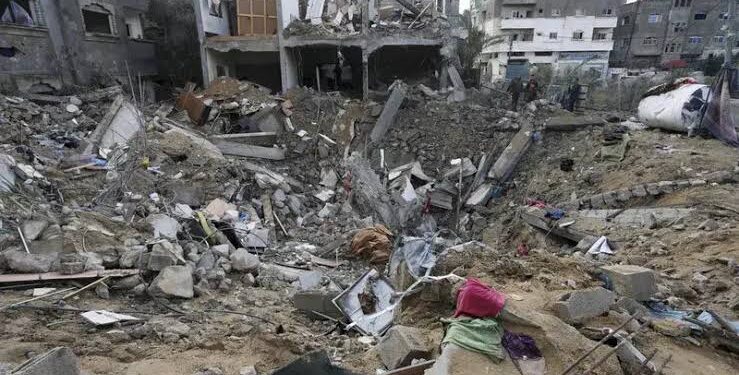The ongoing conflict in Gaza has sparked international concern, particularly due to the high number of casualties. Criticism of Israel has extended to the United States, Israel’s strongest ally and primary arms supplier.
In an effort to resolve the conflict, President Biden recently proposed a ceasefire plan on behalf of Israel, which was adopted by the UN Security Council on Monday. Hamas remains the only party yet to agree to the proposal.

On Tuesday, a senior official from the Palestinian militant group Hamas stated that they accept the UN resolution supporting a plan to end the war with Israel in Gaza and are ready to negotiate details.
Qatari and Egyptian mediators confirmed they had received a formal reply from Hamas to the UN-backed truce proposal. In a joint statement on Tuesday, Hamas and its ally Palestinian Islamic Jihad expressed their “readiness to positively” work towards a deal to end the conflict.
However, both Israel and Hamas have suggested the plan aligns with their opposing goals, raising doubts about the feasibility of reaching a genuine agreement.
“The Hamas response reaffirmed the group’s stance that any agreement must end the Zionist aggression on our people, withdraw Israeli forces, reconstruct Gaza, and achieve a serious prisoner swap deal,” a Hamas official told Reuters.
Discussions, which will also address post-war plans for Gaza, are set to continue over the next few days, Secretary of State Antony Blinken said in Tel Aviv after talks with Israeli leaders.
Blinken mentioned that the Hamas statement was “a hopeful sign,” but definitive confirmation from the Hamas leadership inside Israeli-besieged Gaza is still needed.
Why it Matters
The Gaza conflict, ongoing for about eight months, has drawn significant criticism due to the high number of Palestinian casualties. The relentless violence has spurred calls for a settlement and resolution. While Hamas’s willingness to consider the US-proposed ceasefire plan is a step forward, doubts remain about whether Israel and Hamas can reach a compromise to end the conflict. The question persists: will this recent agreement bring real hope or lead to another failed attempt at mediation?
Bottom Line
The international community remains cautiously optimistic about the potential for a ceasefire in Gaza. While the acceptance of the UN resolution by Hamas is a positive development, the significant challenges ahead underscore the complexity of achieving a lasting peace. Continued diplomatic efforts and genuine concessions from both sides will be crucial in transforming this “hopeful sign” into a reality.

















